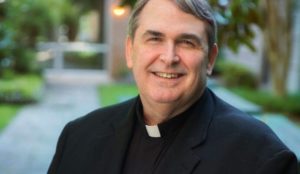
A new bishop has been named for the troubled Buffalo Catholic diocese. And a local Catholic group responded to his appointment with comments that made us at Horowitz law cringe, because we’ve seen this pattern time and time again.
On the day of Bishop Michael Fisher’s promotion, the lay organization, called The Movement to Restore Trust, congratulated Fisher, pledged to work with him and said it’s greatly encouraged that he “considers himself first and foremost a pastor.”
https://www.wxxinews.org/post/vatican-appoints-new-bishop-buffalo-catholic-diocese
Our take: What matters is not what an official SAYS that he is. What matters is what he SHOWS that he is.
Before any person or group immediately pledges to cooperate with Fisher – or gets their hopes up – consider these facts:
—Fisher’s been a priest for 30 years. That alone – three decades in a rigid, all-male, hierarchical and largely secretive structure – suggests he’s not going to rock the boat or bring the significant reforms Buffalo kids need and Buffalo Catholics deserve.
–Fisher was made vicar general, a high-ranking post, by the now-defrocked and disgraced Cardinal Ted McCarrick, who both committed and concealed abuse against both innocent kids and vulnerable adults.
https://en.wikipedia.org/wiki/Michael_William_Fisher
–Fisher was made an auxiliary bishop by Cardinal Donald Wuerl, an even more powerful post. Wuerl resigned as head of the large and prestigious D.C. Archdiocese after a Pennsylvania grand jury report sparked outcry over his handling of abusive priests in the early 1990s.
–Fisher originally comes out of the Baltimore Archdiocese, which attracted national attention just a few years ago when the award-winning series “The Keepers” premiered on Netflix. It described a long-time serial Maryland predator priest who may have murdered a nun who had been told of his crimes and may have been on the cusp of exposing them.
https://www.theguardian.com/tv-and-radio/2017/jul/15/keepers-church-response-netflix-baltimore-abuse
–Fisher claims he has no opinion on whether a church probe of now-retired Buffalo Bishop Richard Malone should be made public, even though it was launched over a year ago and has garnered considerable publicity.
https://www.wkbw.com/news/i-team/vatican-authorizes-investigation-of-diocese-of-buffalo
–Fisher seems to be stressing that he’ll ‘restore trust.’ In our view, that should be at least third on his priority list. First should be the safety of kids and second should be the healing of victims. When that happens, trust will begin to be restored.
Finally, five years before Fisher was ordained, Fr. Gilbert Gauthe of Louisiana became infamous as the first and most notorious proven serial predator priests, garnering headlines from coast to coast.
That same year, 1985, every Catholic bishop in America got a searing and prescient 250 page report on pedophile priests from a trio of highly respected experts – a civil attorney, a canon lawyer and a priest. It recommended drastic changes in how these cases were handled. And it was tragically ignored.
Two and a half years ago, Fisher became an auxiliary bishop in Baltimore.
As best we can tell, in his long clerical career and his various positions – especially since his most recent elevation, neither the archdiocese he leads, nor Fisher himself, has taken a single noteworthy step toward better safeguarding kids, helping victims or exposing cover ups, beyond the absolute bare minimum.
Here’s the depressing pattern we mentioned:
Scandal engulfs a diocese. The bishop dies or retires or, in painfully few cases, resigns. Everyone breathes a sigh of relief.
Later, a new bishop is named. And everyone assumes he’ll do better.
Then, years later, they’re shocked and disappointed that little if anything has changed.
Consider a sports analogy. Many teams underperform. Then, in the off season, they make a change – a managerial shift, a big trade or whatever. Their loyal fans, desperate to see a failing franchise become a winner, naively and immediately get excited and hope for (and sometimes bet on) a sudden, dramatic turnaround for their beloved team.
The Catholic hierarchy, however, rarely makes a real change. It’s a hidebound institution. Its changes are usually largely cosmetic. Its leaders are remarkably similar men with remarkably similar backgrounds and attitudes and aspirations. It breeds and rewards and promotes ‘company men,’ who toe the official line and rarely show dynamic leadership.
So it’s somewhat irresponsible for any of us to prematurely relax and assume progress until progress is actually shown.
And it’s silly to expect any one man can radically reform an ancient structure single-handedly, especially if he immediately gets praise instead of pressure when he’s appointed.
On one hand, it’s hard to argue against being charitable. And it may seem cruel to squelch desperately needed hope.
But it’s right to do so, when the facts dictate otherwise.
